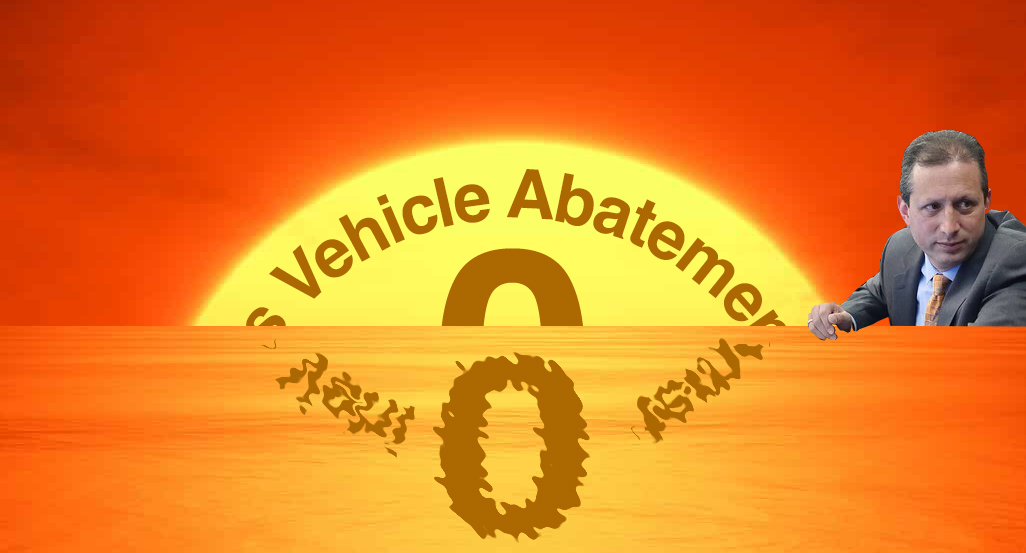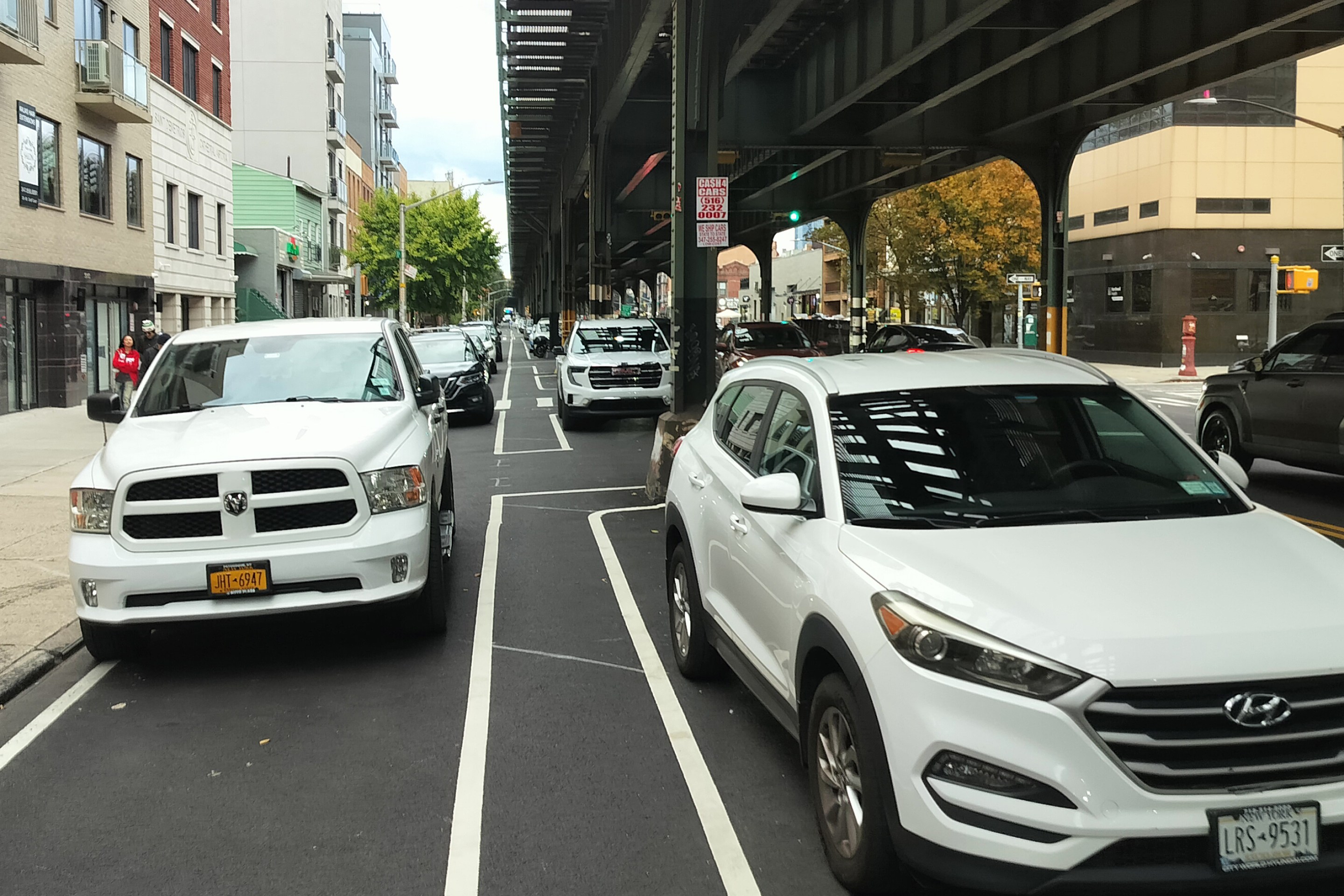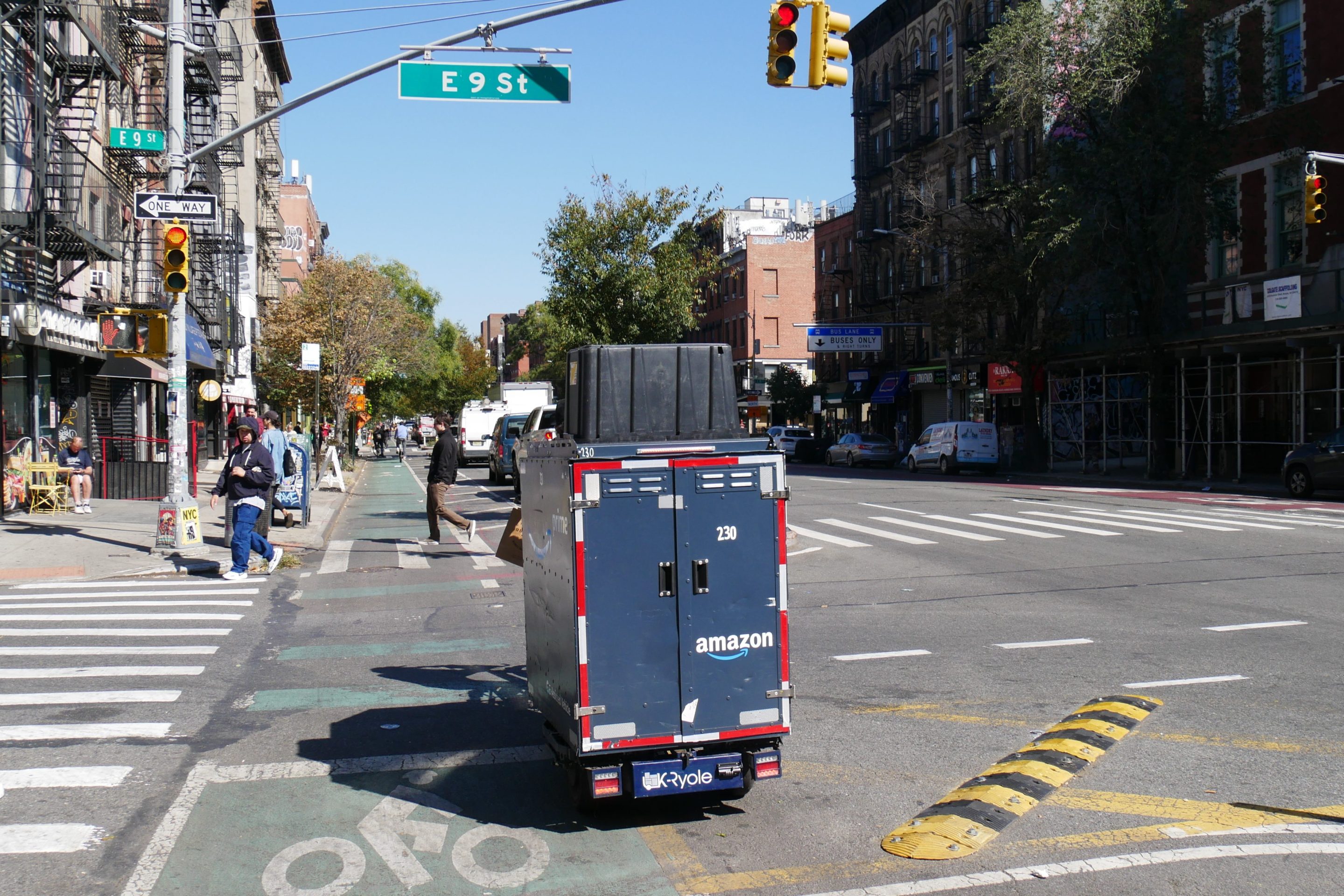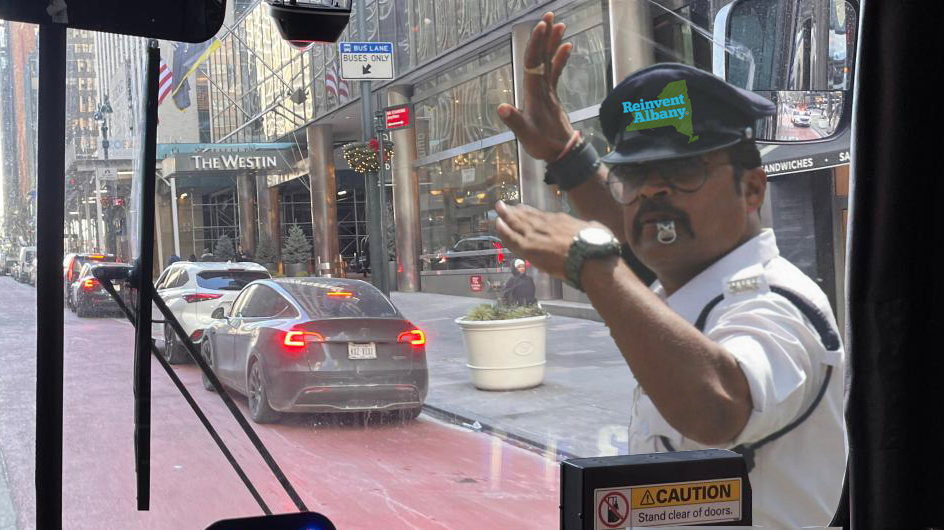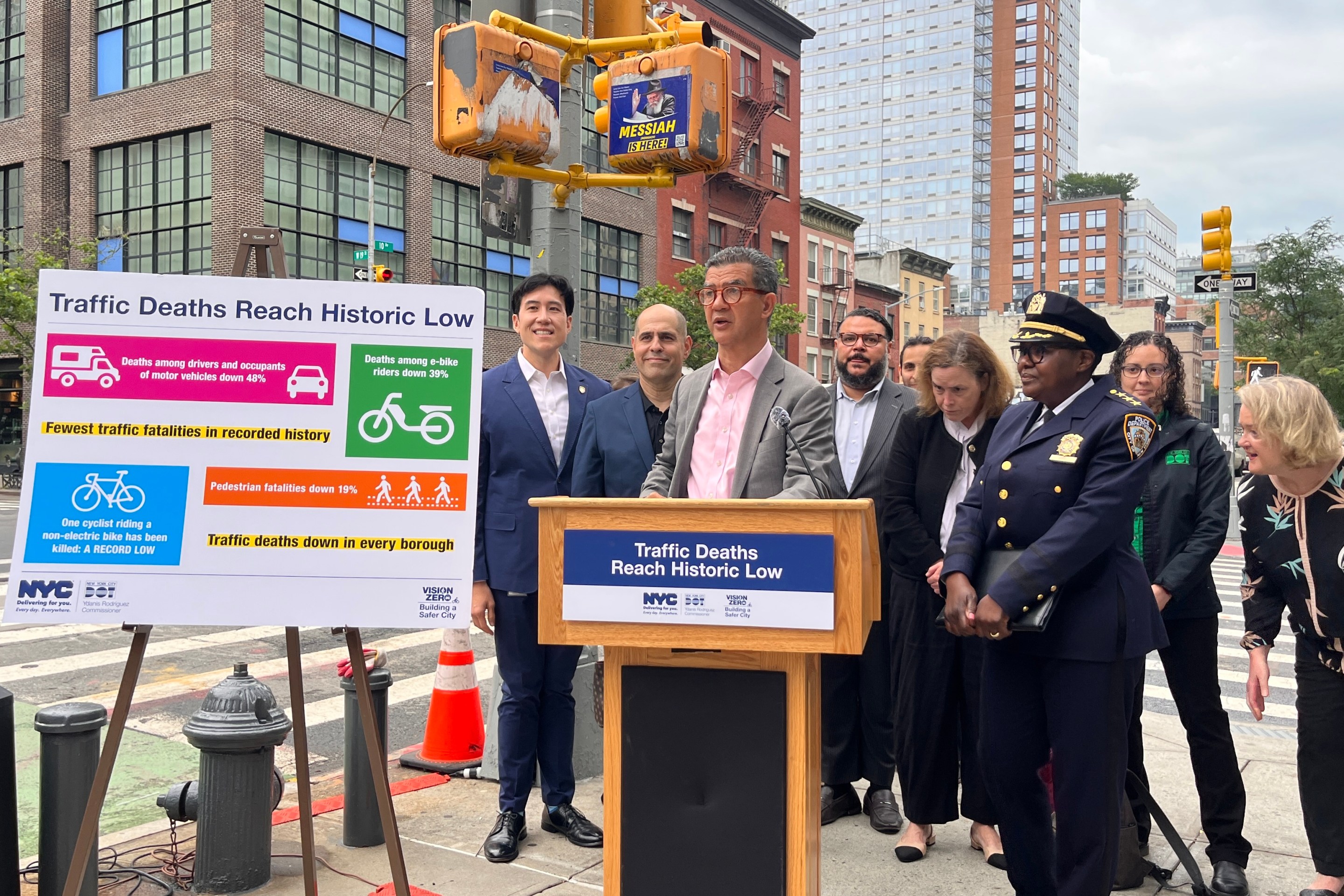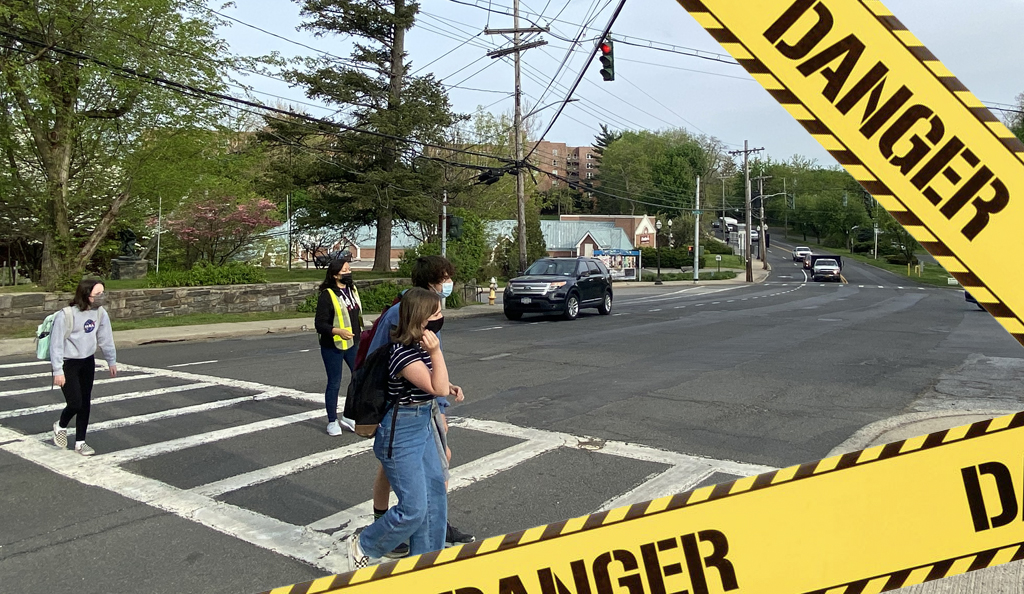The architect of a city program to rein in and re-educate the most reckless drivers joined the chorus of advocates demanding that the City Council and Mayor Adams reauthorize — and strengthen — the effort.
On the day that the Dangerous Vehicle Abatement Program expires by city law, Comptroller Brad Lander is poised to release a policy brief [PDF] demanding a beefed-up program that seizes more cars of recidivist reckless drivers and gets more of them into a more rigid safety course.
“Traffic crashes are consistently a leading cause of preventable deaths in New York City – and reckless driving is too often the cause,” said Lander, who wrote the 2020 law that created the Department of Transportation program when he was a Council member. Lander has remained a critic of the manner in which the city implemented the program, which aimed to deal with drivers who accrue 15 or more of the $50 camera-issued speeding or five red-light tickets in 12 months.
“Without the [program], and in the absence of any city or state programs in place to improve or replace it, the city’s DOT and traffic courts have no tools at their disposal to hold the most dangerous drivers accountable outside of a fine that is currently less than a parking ticket, no matter how many red lights they run, or how many dozen times they speed in school zones."
"The city’s approach to traffic safety is incomplete without a plan to curb reckless driving," his report added.
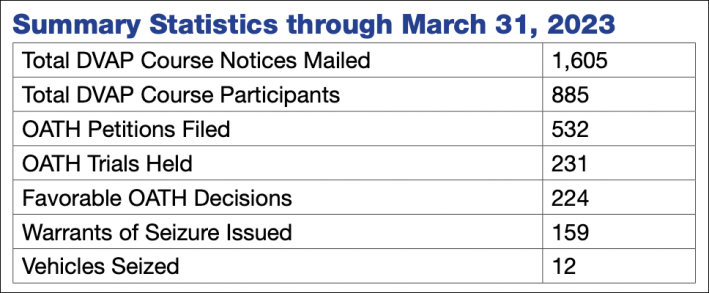
Lander also distanced himself from the failure of the program:
"The Department of Transportation failed to implement the program as designed," the report states, citing the city's year-long delay in starting the program, due to alleged budget restraints at the start of the Covid-19 pandemic; plus the failure to create the safety course with the Center for Justice Innovation and choosing to create one in-house instead.
Lander's program — then called the Reckless Driver Accountability Act — hoped to get 5,000 drivers into the safety course per year. But according to the DOT's own report on the first two-and-a-half years of the program only 1,605 drivers were ordered to take a course, yet only 855 ended up doing so. In the end, only 12 cars were seized under the program, though it's unclear if the towing was a result of failing to take the course, or re-offending after it.
According to Lander's report, the City Council must first reauthorize the program, then the Adams administration should expand its capacity so it can hit the 5,000-driver target with a better safety course than the 90-minute one the DOT created.
The expanded capacity should also include more towing of cars belong to drivers who skipped the safety course or reoffended after. DOT's own report on the program showed that it could take as long as eight months to get a warrant to seize the car of a driver who failed to show up for the course — a period when these drivers already nabbed for recklessness could keep being reckless.
In reauthorizing the program, the Council should "consider a wider range of escalating consequences, based on the number of violations a driver has," the report added.
Lander also called for the passage of a pending Council bill to require the DOT (with help from the NYPD and other agencies) to conduct a study to determine what behaviors are associated with traffic crashes.
Building "a data-driven understanding of the driving behaviors most closely associated with crashes," will allow policy makers to "craft effective interventions and responses, and tailor enforcement accordingly," Lander said.
Like many other experts, including those within city government, Lander called for intense action by state lawmakers, including passing such initiatives as:
- S451 (sponsored by Sen. Mike Gianaris), which would suspend a driver's registration for five camera-issued tickets in a year.
- An unnumbered bill (Gounardes), which would put speed governors on the cars of drivers who exceed the same threshold.
- A proposal (also by Sen. Andrew Goundardes) that was cut out of last year's speed camera reauthorization to alert insurance companies when drivers get camera-issued tickets.
- Stepped up punishment to drivers who cover or obscure their license plates, long an obsessions of Streetsblog readers (and editors).
"When reckless drivers do not face repercussions for dangerous driving, New Yorkers become increasingly vulnerable to traffic violence at a time when fatalities and injuries are already unacceptably high," Lander concluded.
Speaker Adams declined to respond to specific questions, but a spokesperson for the Council said, "The Council is committed to advancing solutions that address reckless and dangerous driving."
The spokesperson agreed with Lander and the DOT that the program exhibited "significant underperformance," but offered no concrete plan forward.
"The Council is proceeding thoughtfully and gathering critical input to pursue effective solutions that make our streets safer," the spokesperson continued. "Reviewing the Comptroller's report and feedback from other stakeholders is part of the critical process to meaningfully confront dangerous driving."
The DOT has not responded to follow-up questions about DVAP since issuing its report on Sept. 22, two months after the deadline.
